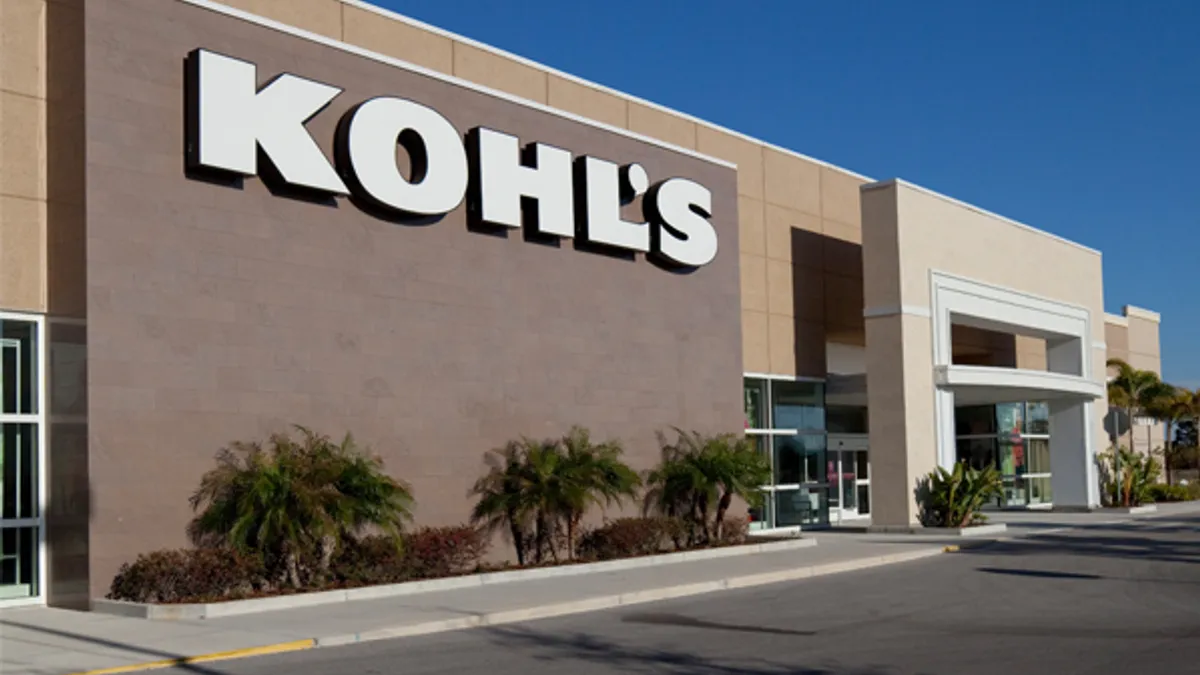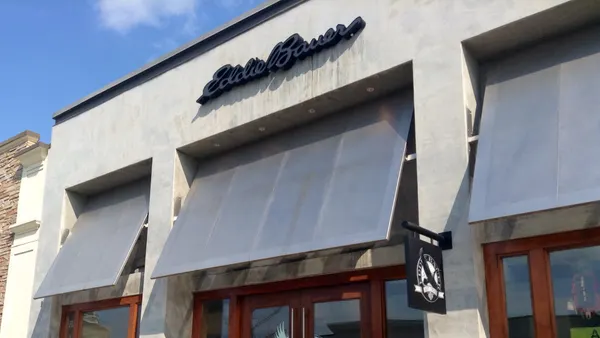Dive Brief:
- Revenue at Kohl's was up 15.6% year over year to $4.6 billion in the third quarter, with comparable sales up 14.7%, according to a press release.
- Gross margin was up more than four percentage points from Q3 last year, while operating income grew more than seventeenfold. In a presentation, Kohl's said its inventory turn reached a 10-year high.
- While the company touted its inventory discipline, CEO Michelle Gass noted to analysts that inventory levels for the year remain below what the retailer has planned for, according to a Seeking Alpha transcript.
Dive Insight:
For years, discounts have been the hungry monkey on the backs of department stores and other apparel retailers, eating away at profits. Try as they have, many retailers have struggled to retrain customers to buy at full price.
Much of the blame can go to price transparency made possible by the internet and mobile technology. The seemingly unstoppable expansion of off-price juggernauts including TJX Cos and Ross Stores has not helped, nor has the rise of online sales of apparel.
Even in the face of those challenges and sales declines, many retailers, especially department stores, have struggled to do their inventory buying in line with their actual sales.
While operators are no doubt aware of the margin pressures from oversupplies of inventory, they also face the prospect of a lost sale if they don't have products in stock when customers do come by their stores. Not to mention the simple fact that buying inventory, especially in apparel, is a hard and perpetually speculative business.
This year, however, the inventory discipline is being imposed on retail. Supply chain bottlenecks and hiccups have created delays and pain points all along the chain.
Kohl's Gass said that the retailer planned for inventories to be lower than in 2019, in line with "our strategy to drive margins and turnover." But, she added, "our levels remain below that original plan." That is due to extended transit times and transportation costs, which Gass said was evidenced by a 25% decline in inventory levels on a two-year basis at the end of Q3.
But the increase in margins, as Kohl's pressed ahead with a more favorable pricing strategy, more than offset any added costs from shipping and supply chain headaches — which is much easier to do when the entire industry is suffering all the same troubles bringing inventory into the country and onto shelves.
Still, the supply chain disruption creates some problems on the sales side. Telsey Advisory Group analysts led by Dana Telsey noted that inventory declines hampered Kohl's growth objectives in women's apparel. "Within the women's category, [Kohl's] is taking advantage of the lower inventories to chase product winners, notably Sonoma, SO, Lauren Conrad, and other new brands like Eddie Bauer and Lands' End," the analysts said in an emailed note.
Kohl's Q3 sales and profit growth are also due to its own initiatives, including growth in beauty and active apparel. In beauty, Kohl's rolled out its new partnership with Sephora to 200 stores. In a research note, Cowen analysts said of the Sephora shop-in-shops, "we believe the first impressions regarding customer acquisition and attachment rates bode well for the rest of the roll-out."















